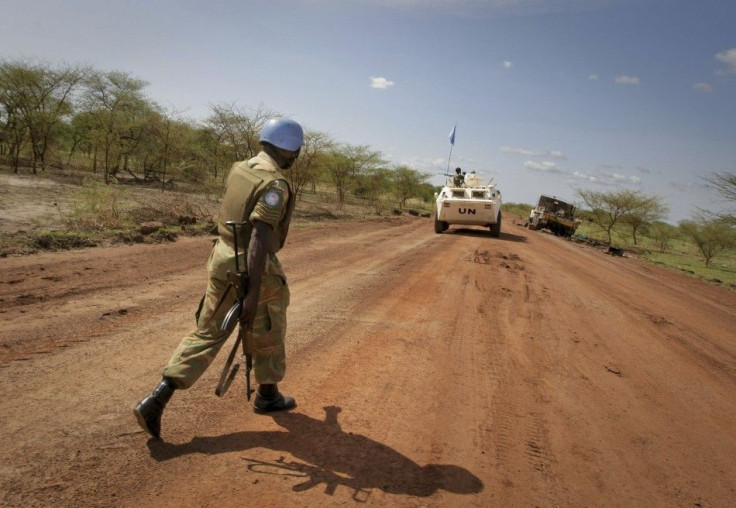Abyei: Sudan's Endless Tug-Of-War Over Coveted Oil Region
ANALYSIS

There are conflicting reports over an alleged withdrawal by Sudanese forces from Abyei, the disputed, oil-rich region on the border with South Sudan. While the United Nations confirmed Sudan's troop withdrawal, the BBC is reporting that a platoon of 200 Sudanese police officers is now in the region, provoking fears that Sudan hasn't really left Abyei, nor that it has plans to do so.
In the past 12 months, Abyei has become a microcosm of a larger conflict between the two Sudans, one that has brought the neighboring nations again to the brink of war. A clash between the northern and southern armies there almost exactly a year ago deteriorated a budding peace process that is only just beginning to slowly recover.
Abyei represents both the ethnic and economic battles that have been waged in Sudan for decades. The area is home to the Dinka Ngok and Misseriya tribes, who are loyal to the south and north, respectively. Dinka Ngok tribesmen fought in the civil wars with the Sudan People's Liberation Army, or SPLA, whose political arm is now in power in South Sudan. On the opposite side of the conflict was the Misseriya, who fought for Khartoum.
This dynamic has played itself out in every state where there are clashes between the north and south. In Southern Kordofan, where film star George Clooney, among others, has accused the Sudanese government of bombing noncombatants, the Nuba people, who are loyal to Juba, are the target of aggression. Likewise, Khartoum has accused the south of funding rebels in the Blue Nile state, and the Sudanese Armed Forces have recently reclaimed the Angasana Mountains, according to AllAfrica.
Abyei also has economic significance.
Sudan has been embroiled in five decades of war, but the conflict's most recent iteration started seven years ago. During the 2005 negotiations that would eventually lead to South Sudan's independence in July 2011, Abyei was left off the map. But because of its oil fields and pipeline, it was a major asset that both sides would eventually claim as their own.
While Abyei's reserves are thought to be running low and the Greater Nile Oil Pipeline is now sitting in the town of Heglig, thanks to a redrawing of borders in 2009, there is still an outstanding dispute over how to split oil revenues. The disagreement will be one of the main topics at the peace talks in Ethiopia, which restarted on Tuesday after a long hiatus.
As much as it has been a model of war recently, Abyei could someday be a model for peace. Because of its disputed nature, the Abyei Area Administration was established in 2008, and, theoretically, the region should be governed equally by both north and south Sudan. While it hasn't worked out that way -- Sudanese President Omar al-Bashir removed the southern administrator of the Abyei province after 5,000 northern troops took over the region last May -- mediators in Addis Ababa will try to remedy that situation.
The United Nations is also trying to facilitate that process.
On Tuesday, a total of 4,000 new peacekeepers from Ethiopia replaced troops from the United Nations Interim Security Force for Abyei, whose six-month mandate had expired, according to the Sudan Vision, and the troops have apparently been effective at allaying tensions between the Dinka Ngok and Misseriya tribes.
The news that negotiations were back on was overshadowed by Juba's latest accusation that Sudan launched a new bombing raid on the Warguet area of the Northern Bahr el Ghazal state, which borders Abyei to the west. If the allegations are true, Sudan and South Sudan have more to work out than ownership of the 4,000 square mile region of Abyei.
© Copyright IBTimes 2024. All rights reserved.





















